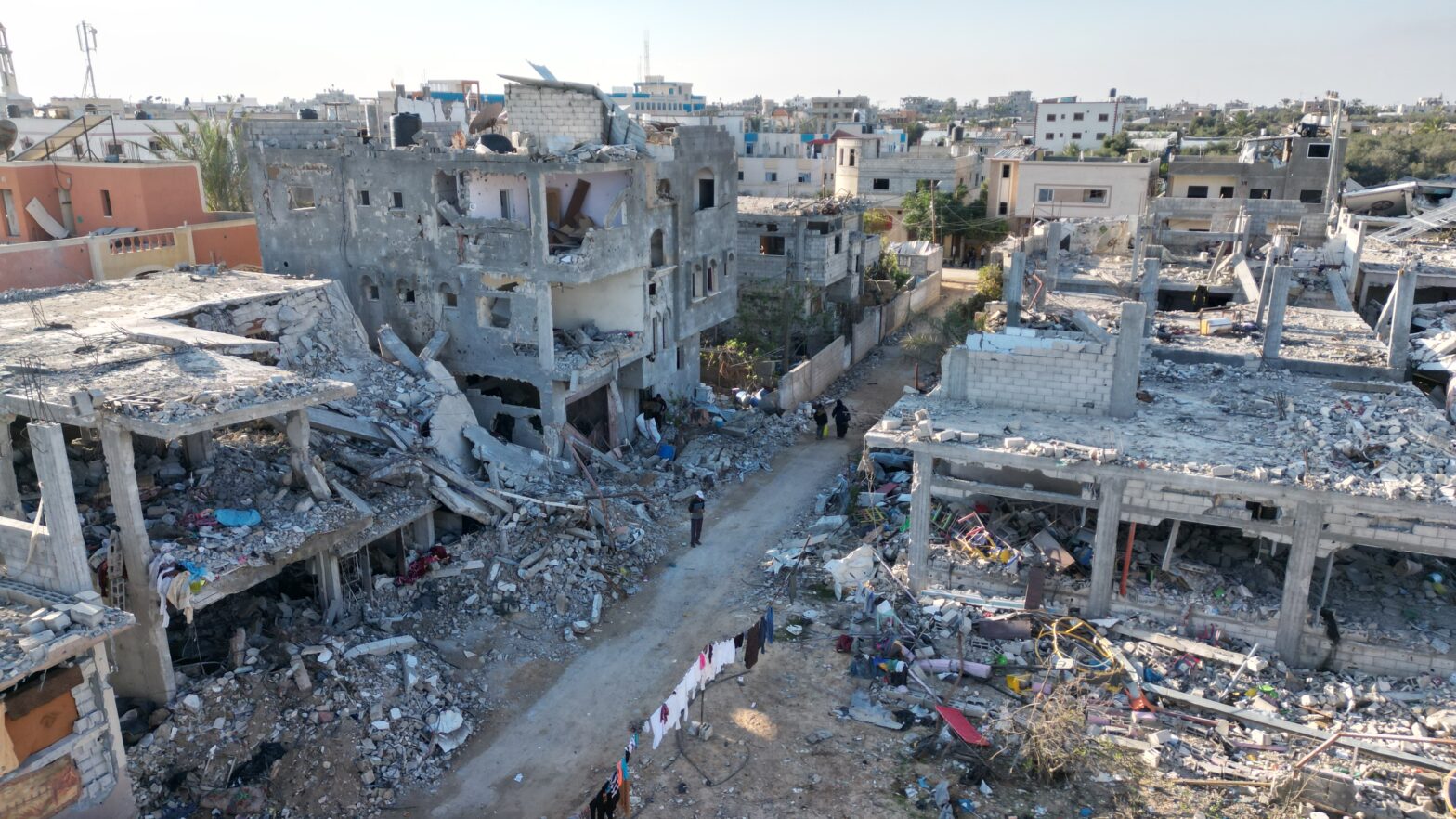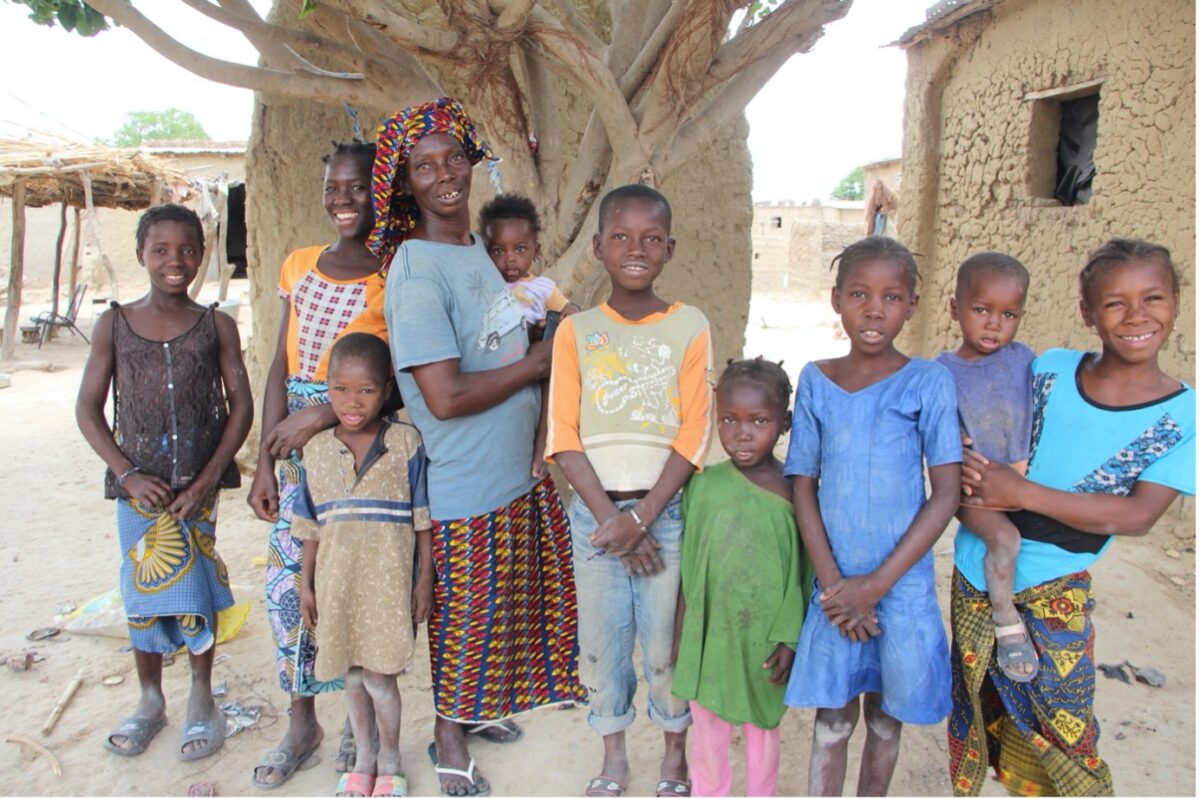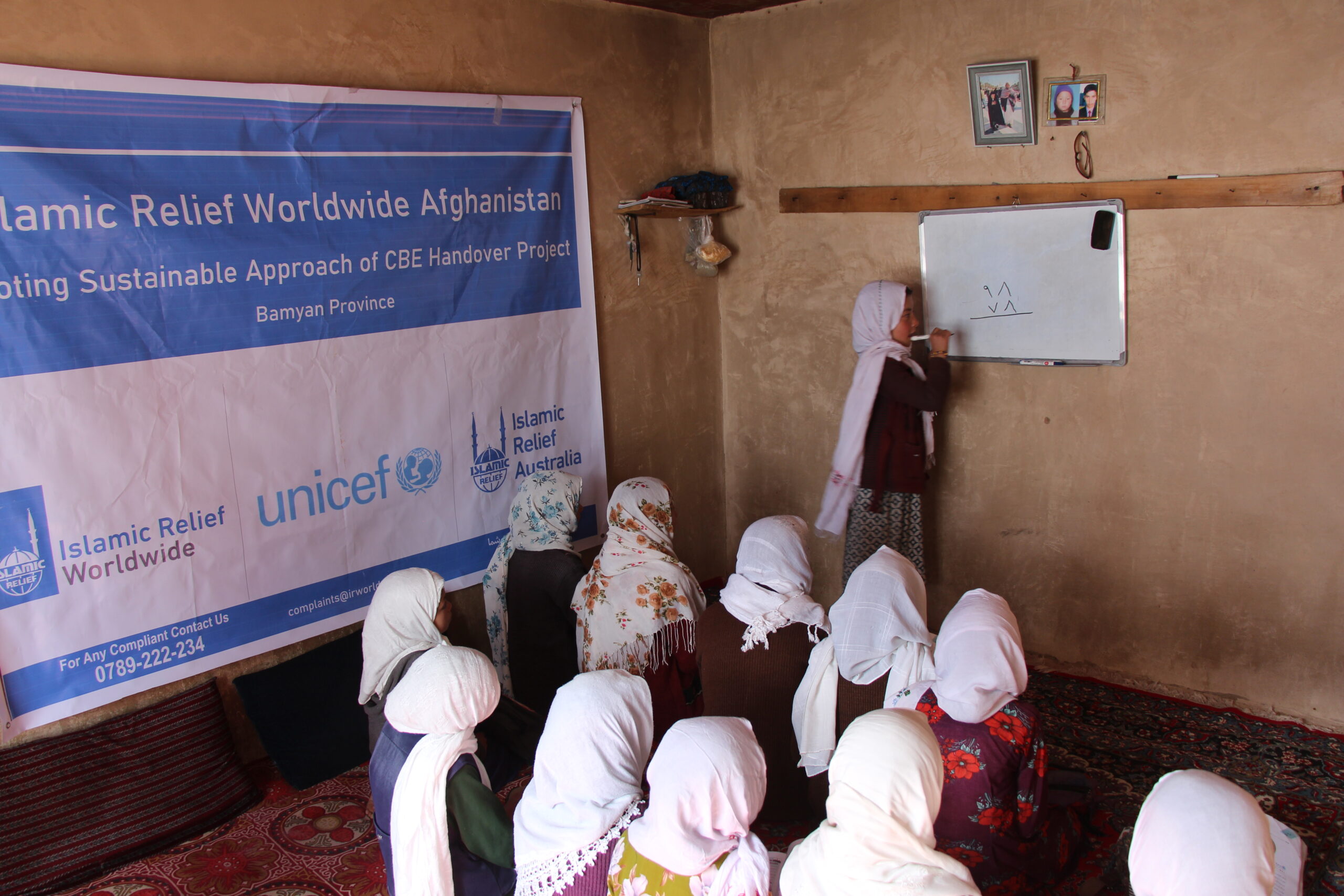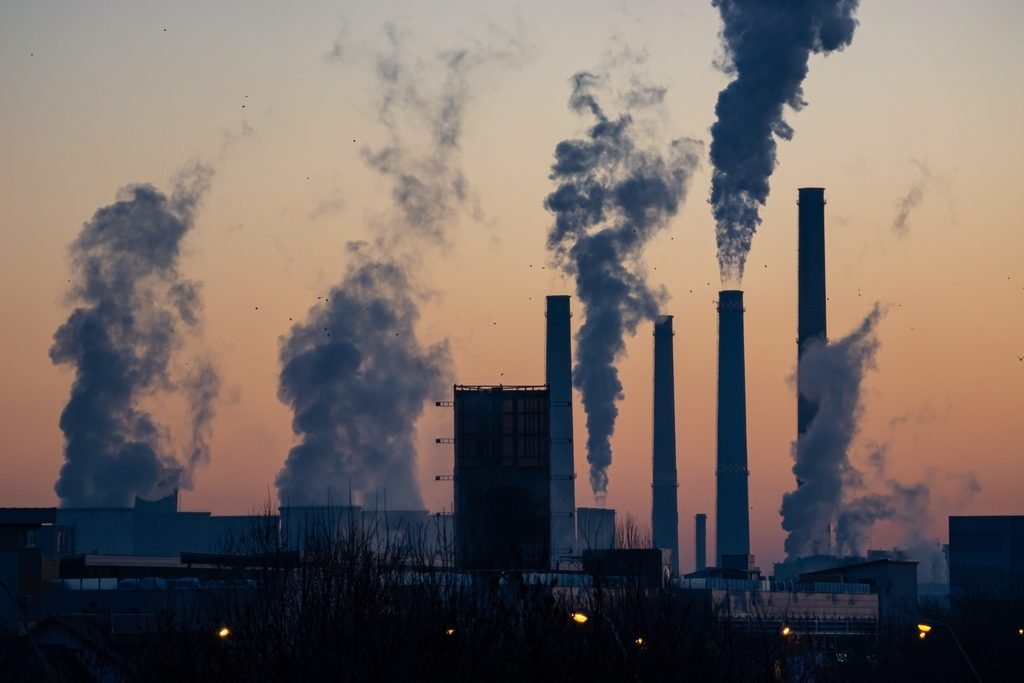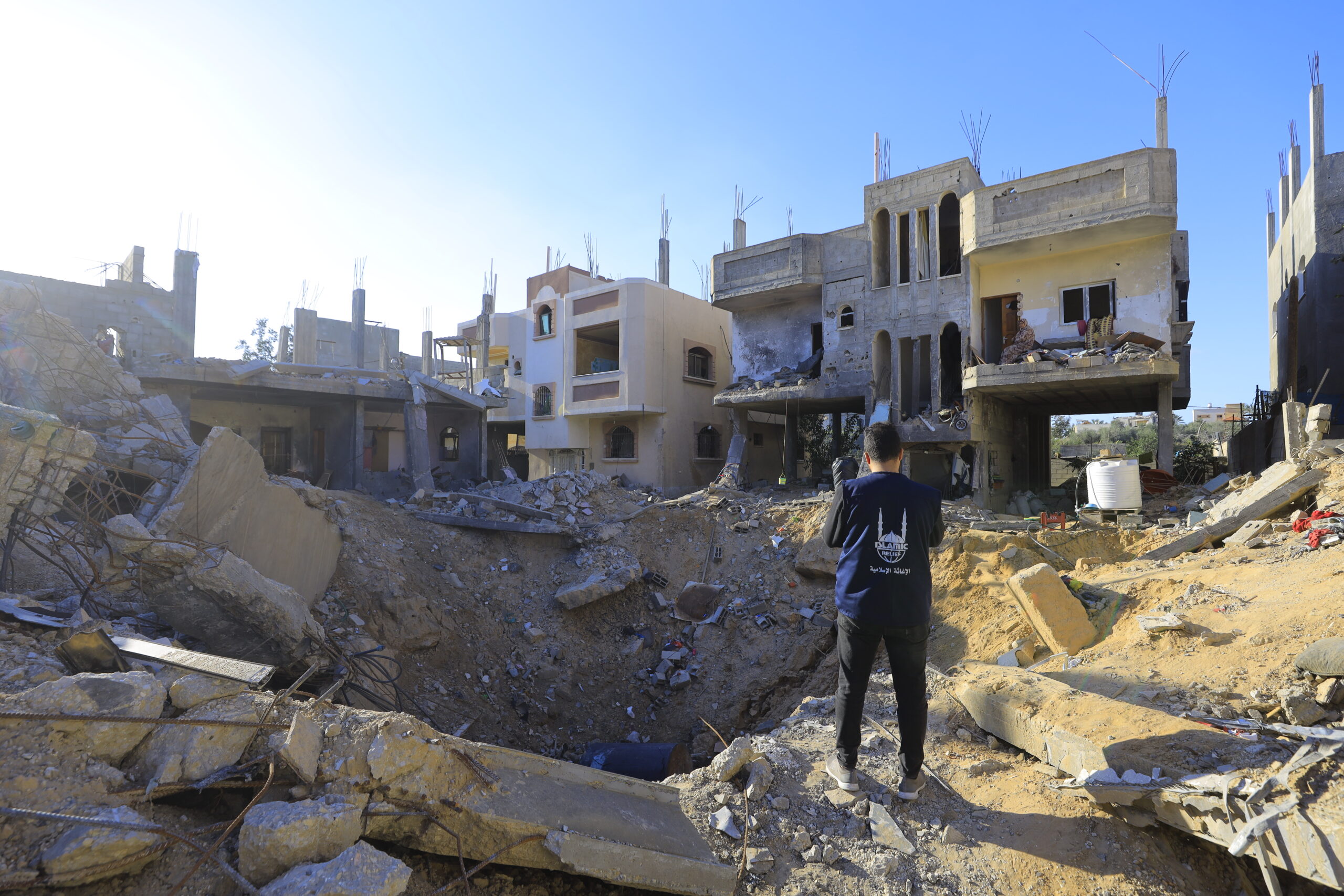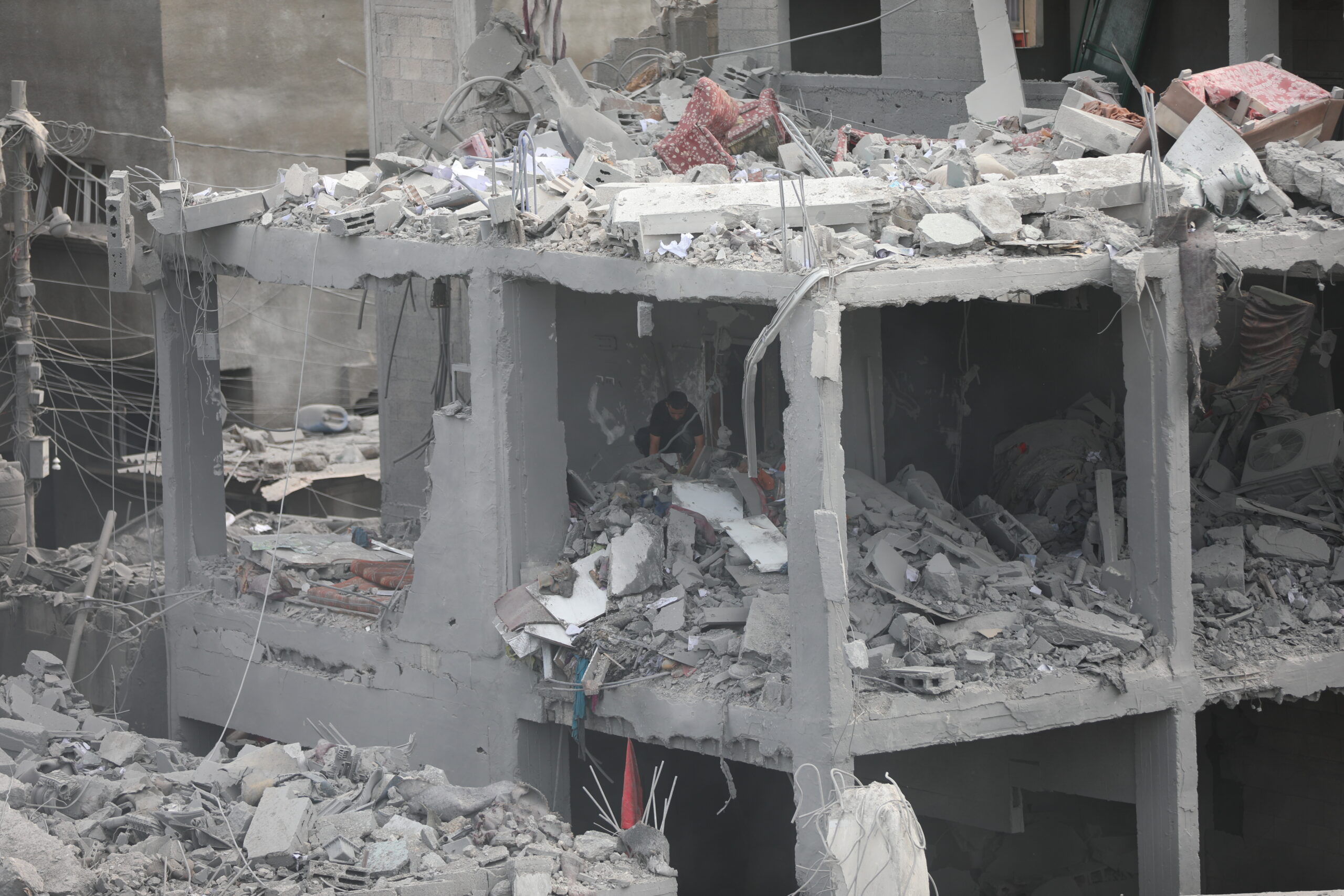The end of the temporary truce sees Palestinian families facing fresh fear and tanks at their door, reports an Islamic Relief aid worker* in Gaza.
It is day 58 since the escalation began, but it feels like 58 years. My hair is turning grey. My house is damaged. My work is suspended. I do not leave the house. I am becoming anxious and could drop into depression. I don’t feel I want to keep writing this blog: I do not feel I have the power to continue telling the story, which is the same story of suffering.
My dear readers, I have been thinking death is better than this life. Once we lived in dignity, but now our dignity is being violated in every possible way.
We count lost lives while the world watches
Just 10 minutes after the humanitarian pause ended, the heavy airstrikes and bombing started again, the terrifying sounds dragging me and my family from sleep. The bedroom window was shaking with the noise, terrifyingly loud. My young son asked me if the truce was over, but I didn’t know.
Now, I know that in the first 24 hours since the violence restarted, more than 190 people were killed.
Palestinians keep counting the lives lost, and the world keeps watching. I have lost hope that anyone can put an end to this madness – none of the world leaders seem to care. I have lost faith in this world. I lost faith in humanity. Humanitarian law is applied only to select people and we Palestinians, do not appear to be among them. We are denied any rights. We do not even die with dignity. Our bodies are torn apart and we are smashed under the rubble of our homes.
Why is this happening? What have we ordinary families done? The only force that keeps us standing is our faith. Our strong belief that Allah will help us. He is the almighty, the most merciful, the powerful. Alhamdulillah.
Nowhere is safe in Gaza
Yesterday was the second day after the humanitarian pause. It was midday when we heard news that tanks had started entering the area between the middle area and the south. We thought the south of Gaza was a safe place. It turned out nowhere is safe in our country. The safest place is where the dead are buried – but even then, sometimes graveyards have been hit by airplanes.
As the reports kept coming about the land invasion in the south, I worried about my friends living there. I called my friends there, they used to work for Islamic Relief. Hamza* told me they had to evacuate their home; and my phone call with Nour* cut off just after she screamed, “A rocket, a rocket!”
I managed to get her on the phone again, and she explained that, “We can hear the sound of tanks outside. We can’t leave. They are bombing and we can hear gunfire all around.” I was very worried about her. I could not help her.
Nour was about 1km away from me, so I knew the tanks would be heading our way. Everyone in the house was frightened. My brother gathered the kids and said, “The situation is very dangerous now. I want you all to gather all your courage and stay calm. Please listen to the instructions the adults give you.”
One of the kids asked him, “Will the tanks destroy our house?” The kids always think of questions that we cannot answer – how could we possibly know?
We lived a hell of a night. The sounds of bombing and shelling never stopped. I could also hear heavy gunfire, maybe from a tank or helicopter. But we survived, Alhamdulillah.
There really is a war zone over the heads of civilians like me, my wife, and young children, who may be forced to flee yet again. We rearranged our emergency bag because the next time we flee it might be on foot. We might have to stay in tents. We might lose everything. We might be dead.
Please help Islamic Relief support people in desperate need in Gaza: Donate to our Palestine Appeal now.
*This blog is anonymised to protect the safety and security of our colleague and others mentioned. Read the other blogs in this series here.
Editor’s note: This blog was submitted amid a fast-changing and deepening crisis. The information was correct as of 4 December 2023.



